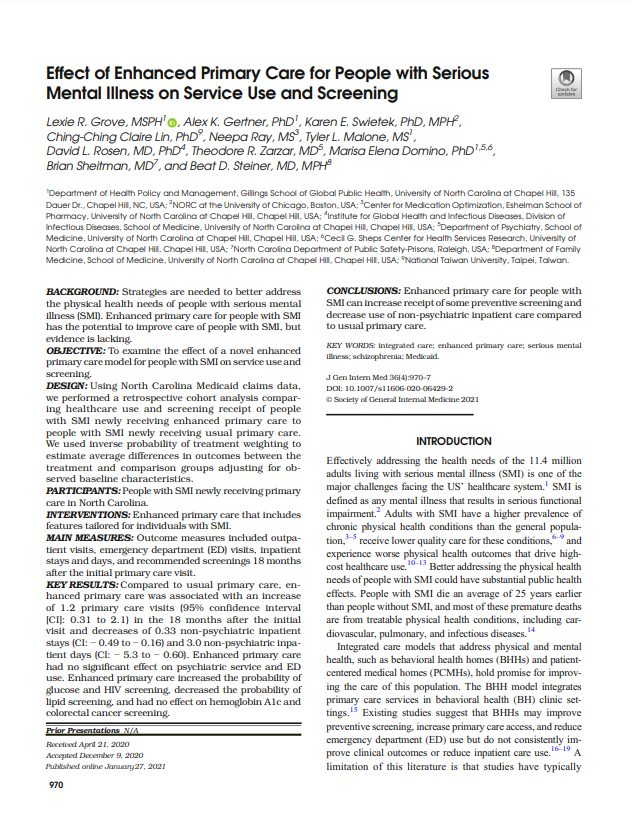Headline
Enhanced primary care for adults with serious mental illness led to increases in primary care visits and health screenings as well as decreases in inpatient utilization.
Context
Adults with serious mental illness (SMI), which includes any mental illness that results in serious functional impairments, often have higher prevalence of chronic physical health conditions, have limited access to preventive care services and experience lower quality care, which contribute to poorer health outcomes, preventable premature deaths, and increased health care costs. To address these challenges, care models such as enhanced primary care have emerged. Within these models, patients typically receive integrated physical and behavioral health services that are tailored to meet the needs of individuals with SMI and provided by trained practitioners. This retrospective cohort analysis assesses the impact of enhanced primary care for adults with SMI on health services utilization and the delivery of preventive health screenings.
Findings
The authors compared the changes in health services utilization and rates of preventive health screenings among adults with SMI who received enhanced primary care from a patient-centered medical home, and those who received traditional primary care. The enhanced primary care providers had smaller patient panels, received specialized training on providing care for people with SMI, and engaged in regular communication and care planning with patients’ behavioral health providers. They also offered care coordination services, peer support, and self-management programs.
Enhanced primary care was associated with an increase in primary care visits and a decrease in non-psychiatric inpatient utilization in the 18 months after the initial primary care visit. Enhanced primary care patients were also more likely to receive glucose and HIV screenings. No significant impacts on psychiatric inpatient utilization, emergency department visits, or A1c and colorectal cancer screenings were detected in the analysis.
Takeaways
This study shows promising evidence that enhanced primary care can improve health care quality and reduce inpatient utilization for adults with SMI. Notably, this provider site is co-located within a behavioral health facility that offers crisis and inpatient care. Additional support or lines of communication with external providers may be needed for primary care sites to implement similar models in the absence of onsite integration between physical and behavioral health providers. The authors also note that enhanced or flexible payment models are likely needed for primary care sites to implement many of the components included in the enhanced primary care model.

